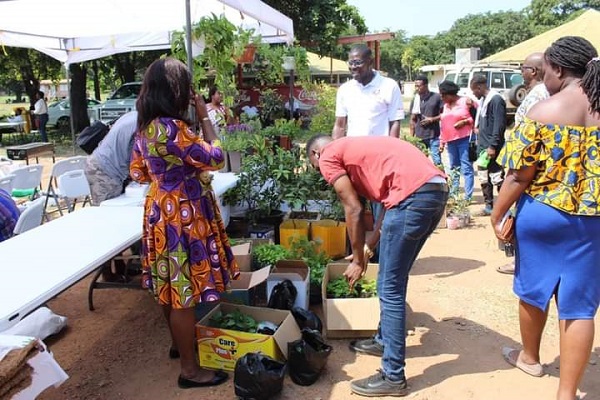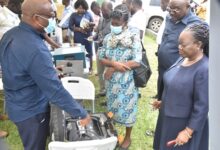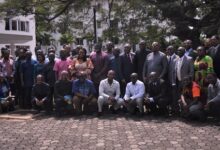
A crop scientist of the University of Cape Coast, Dr Frank Kwekucher Ackah, has expressed worry that most farm produce on the Ghanaian market are unwholesome.
He said the problem was due to negative farming practices such as abuse of pesticides and use of unsafe water for watering crops by some farmers.
Dr Ackah, who was speaking at a 3-day Home Gardening Ghana (HGG) Fair, held at the Efua Sutherland Children’s Park, in Accra, from August 4 to 6, this year, therefore, called on government and other stakeholders to check the phenomenon.
The crop scientist, who started the Home Gardening Ghana(HGG), on July 3, 2020, on Facebook, spoke on organic production practices, focusing on issues of site selection for a garden or farm, seed selection, land preparation, weed management, and pest and disease management.
Dr Ackah indicated that the Fair came up after he organised a community meeting for members of HGG, in Accra, where he learnt of their difficulties to get viable seeds and seedlings among several other items to buy for use on their gardens.
He said the fair brought together vendors and members of HGG, adding that “HGG has the mission to create a home gardening revolution in Ghana with the mandate to teach the construction of gardens, growing of crops, improving soil nutrition, management of pests and diseases using organic methods”.
Dr Ackah expressed the belief that a lot could be done by individuals in planting for subsistence and even feeding others because “even farmers who claim to be doing organic farming are really not doing so 100 per cent”.
He explained, for example, that even with the use of chicken manure, once the birds are given antibiotics, the residue will definitely be found in the crop and so cannot be said to be 100 per cent organic”.
Dr Ackah encouraged every household to, at least, grow something they could eat, to help reduce the effect of abuse of pesticides by farmers.
The lecturer called on the government to regulate agro-shops just as it did to those dealing in the pharmaceuticals.
“This will ensure the sales persons in such shops are well educated on the chemicals they sell to farmers and gardeners and in turn give proper education in their use,” he said.
The HGG has more than 216,000 members across the world, with 80 per cent of them in Ghana and 90,000 of them in Accra.
It has community groups in Upper West, Western, Central, Ashanti, Greater Accra and Northern regions with particular attention on university and hostel garden projects for students growing vegetables in their halls of residence.
BY EDZODZI YAWA CAN-TAMAKLOE







